How Content Marketing Consulting and Coaching Works

Content marketing is an integral part of modern business strategy, and the role of a content marketing consultant has gained prominence. These professionals claim to teach businesses how to craft and strategize content to resonate with their target audience. But do they live up to the hype?
As an agency owner, I don't do as much consulting these days, but I happen to have 15 years of experience as a content marketing consultant.
In this post, I'll give you the good, the bad, and the ugly. I'll dissect the role of these consultants, evaluate their pros and cons, and delve into the factors that might influence your decision to hire one. I'll also compare content marketing consultants to content marketing coaches, and talk about what these experts have in common.
Let's jump right into it!
What is a Content Marketing Consultant?
Let's start with the definition:
A typical day for these consultants involves assessing a business's content approach and figuring out ways to enhance it. They identify who the audience is and think of content that would resonate with them. Working alongside talented folks like writers, SEO specialists, graphic designers, editors, and social media professionals, they bring this content vision to life. And they don't just stop there; they continuously measure how well the content is doing, using analytics tools to track engagement and reach.
Content marketing consultants are like the Swiss Army knives of the content world. They're always updated with the latest content trends and have a range of strategies to make content stand out. They can also guide and train teams to produce better content.
Why Do People Hire Them? My Answer and Analogy
I like to compare blogging to throwing darts at a dartboard. A bullseye is a great throw - something hard to pull off but with great returns.
In blogging terms, a bullseye would be a post that you published that ended up getting a lot of traffic. That means your post received a lot of sales, links, and exposure. Maybe it even went viral!
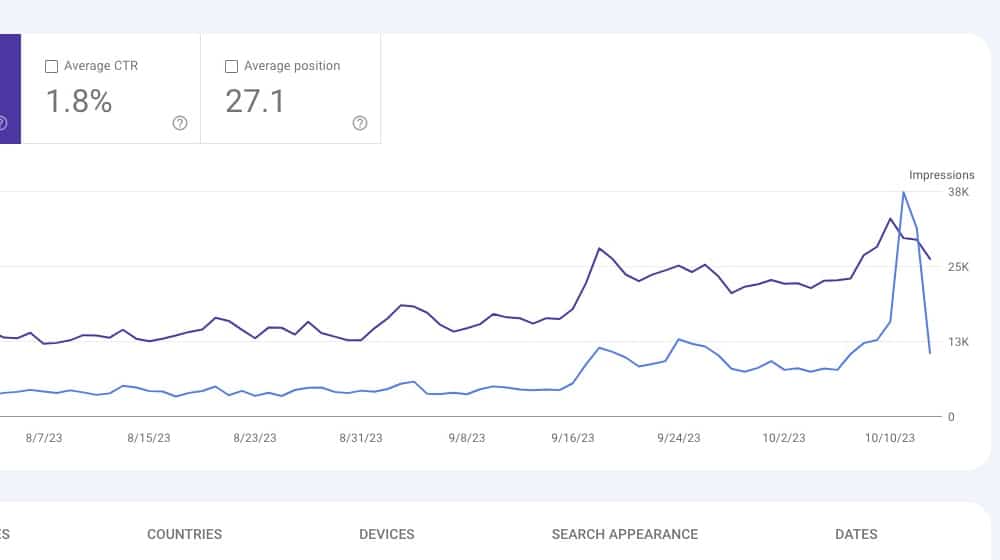
Anyone, given enough darts and enough time, can get a bullseye. It might be one dart out of 100, or one dart out of 1,000, or one dart out of 10,000, but eventually, through sheer statistical probability, it'll happen.
Let's compare content marekting agencies with content marekting consultants:
- I run a content marketing agency. As a content marketing expert and SEO guru, growing websites and sculpting blog posts is what I do for a living. To contrast the consultant position, my job is to take over your dart throwing and generate higher odds of getting a bullseye. I've already thrown millions of darts, I've gotten very good at it, and I know how to increase your chances of getting bullseyes. You pay me to do it, and I do it for you. When someone like me ends a contract, we leave, and you're left with a more successful blog than you had before, but not necessarily with the knowledge of how to run it the way I was running it.
- A content marketing consultant is a little different. They don't take over your dart throwing. Instead, they teach you how to throw better. They look at your form and help you adjust it. They give you tips on how much power to add, how to hold a dart, and where to aim for the distance you're standing away from the board. They charge by the hour, so they don't want to give you all of their secrets in the first hour. Maybe you learn some good tips from them.
That's the comparative impact of a content marketing consultant:
Such is the life of a consultant, always on the move.
The Benefits of a Content Marketing Consultant
Above all, a content marketing consultant is a trainer. They're an external force that you hire, as a consultant, to come in and teach you how to do better. Consultants exist for everything, from ISO compliance to business processes to Agile coaching to management. Why not SEO and digital marketing?
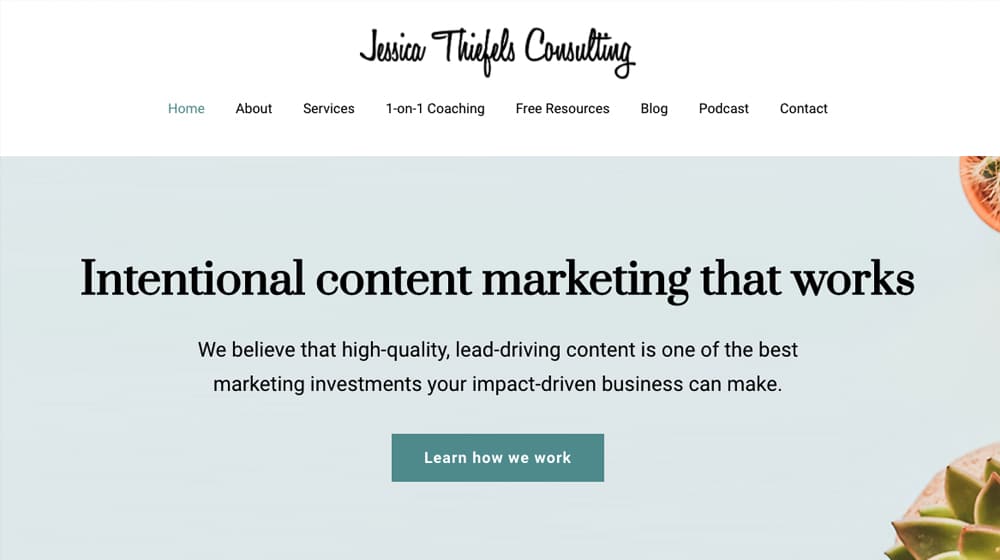
Every good content marketer needs to know how content marketing works. They need to understand things like:
- They need to understand how to identify the target audience of a blog.
- They need to understand how to learn and understand what that target audience is looking for.
- They need to understand how to create high-quality content that reaches that target audience.
- They need to understand how to promote that content on your social media profiles like LinkedIn and Facebook, connect with influencers, and distribute it to other channels.
- They need to understand how to monitor the performance of that content, identify key performance metrics, and optimize your SEO for better results.
- They need to understand how to audit, adjust, and optimize the processes involved to streamline your marketing efforts.
- They need to understand how to use analytics and SEO software, monitor your organic traffic and conversion rate, and spot areas for opportunity.
The only question is, how do you learn that?
- Many companies learn it themselves through trial and error, through reading the blog posts published by agencies like my own, and through monitoring what their competitors are doing.
- Many companies don't care to learn it themselves and hire another company like mine to help them grow their sites the right way.
- Many companies combine the two; they build their team, but they skip the trial and error by hiring a consultant to train them.
A content marketing expert brings many benefits to the table. They know what they're talking about, and they know how to teach it to your team. They can help you avoid the common pitfalls that cost businesses a lot of money and growth over the years. They can help correct past mistakes, remove past penalties, and improve past performance.
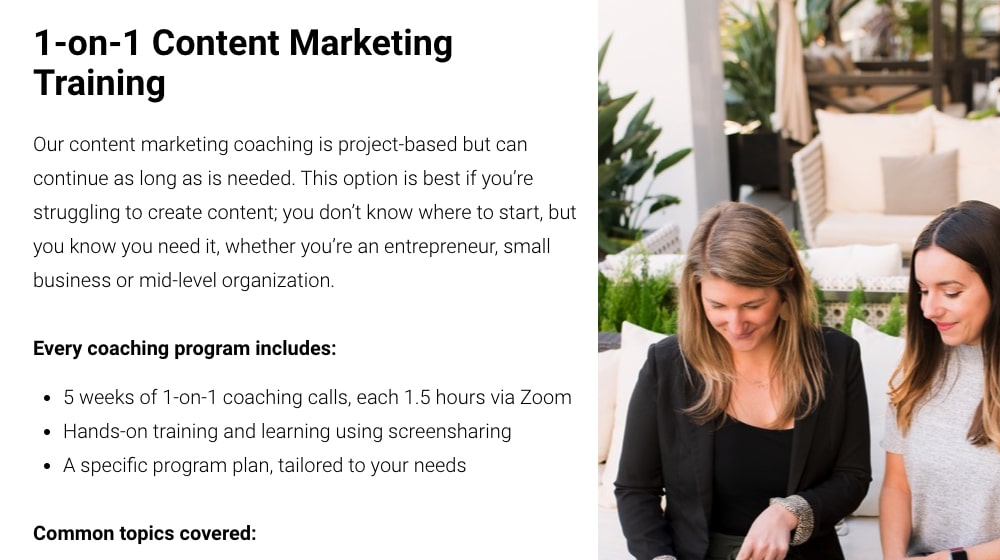
Most importantly, the main benefit of a content marketing consultant is institutional knowledge. An agency like mine, if you cut the contract, we leave. We may teach you how to do things occasionally, even though it's not in the job description, but most of the time we're doing work for you. A consultant personifies the adage; if you give a man a fish, he will eat for a day. If you teach a man to fish, he can feed himself for a lifetime.
"If you give a man a blog, he will generate sales for a day. If you teach a man to blog, he will generate sales for a lifetime."
Of course, there are other benefits too, especially for businesses that find it difficult to get things done.
For example, a consultant brings in objectivity. They aren't going to fluff up your performance numbers to make themselves look better. They aren't going to play into office politics, because their contract is temporary and it doesn't matter once they leave.
A consultant brings in accountability. You're paying them to teach you how to get results, and if you don't put their advice into practice, it's an investment wasted.
So why am I an agency rather than a consultant? They're different business models, and there are drawbacks to hiring a content marketing expert.
The Drawbacks to a Content Marketing Consultant
Before you jump for joy and start looking up the names of the local content marketing consultants, you should remember that there are reasons that they aren't the perfect solution for everybody. There are several significant drawbacks to hiring a content marketing consultant over the other options.

1. First up, you have the cost. The cost of a content marketing consultant is generally high. Consultants charge a premium to teach because their role is temporary. They might work with you for a few months, or a year, but sooner or later, they'll have taught you what they can teach you and they'll need to move on.
2. Secondly, you have to have an in-house marketing team. It would be best if you had employees on staff who are there explicitly to learn how to handle your content marketing for you - a trainer can only train if there's someone to teach. You should expect to have somebody managing your social media accounts, a blog writer, a graphic designer, an editor, an email marketing manager, and an SEO professional. This strategy increases the cost of hiring a consultant over an agency; remember that you're also paying the salaries of your marketing team.
3. Third, and related to the second point, consultants don't handle implementation. At least, most of them don't. They might handle some initial implementation to show you what they can do, but their primary purpose is to teach you how to optimize and run your blog yourself.
- They teach you how to make an inbound marketing strategy, rather than making one for you.
- They teach you some important search engine factors to optimize, such as site speed and internal linking, rather than implementing that SEO optimization for you.
- They teach you how to perform topic ideation, rather than giving you topic ideas.
- They teach you how the basics of content creation, rather than writing your blog posts for you.
- They teach you some best practices of sharing your content to your social media profiles.
- They teach you the different types of content, such as evergreen content, infographics, social content, and skyscraper content.
If you want someone to come in and do everything for you, you hire a content marketing agency like myself. If you want to learn how to handle your content marketing strategy, you hire a consultant to train you to do it.

4. There's also the risk that your consultant might have a different vision than you for the direction of your company. To be successful, a content marketing consultant needs to understand your business, your audience, and your scope. If you have different ideas of how to progress and grow, that disconnect can undo the benefits of having a consultant in the first place.
5. Finally, of course, there's the risk that your team might not internalize what they learn. Like any student, the success of the teaching depends on how well the student learns. If your team doesn't internalize the processes, knowledge, and advice the consultant gives you, then it's money wasted.
What is a Content Marketing Consultant's Salary?
I've mentioned the cost of a consultant a few times, but how much do they cost?
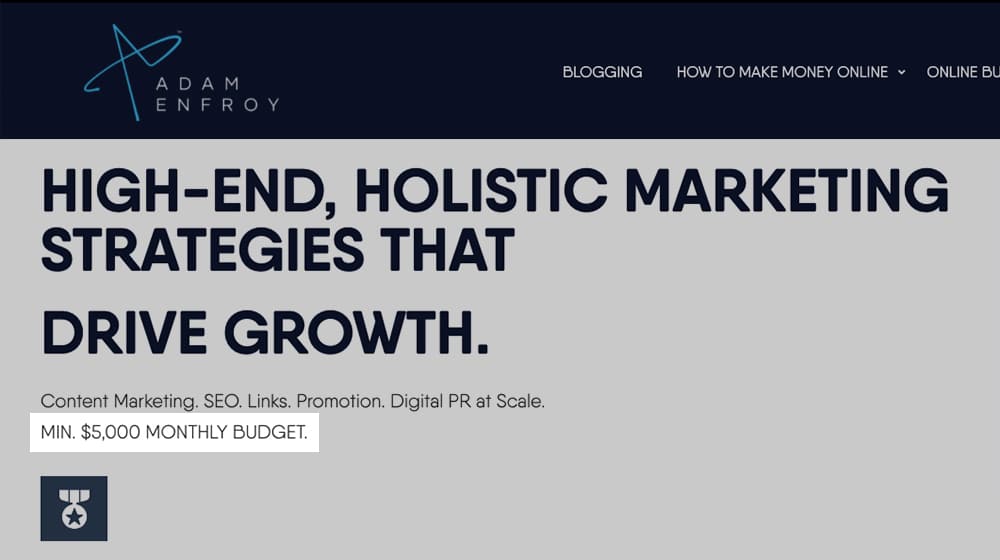
It's difficult to say directly because different consultants at different levels charge different prices.
- At the low end, a freelance content marketing consultant might cost you $30-$50 per hour, with a minimum of 10 hours per month. These consultants come in and give you advice, but they will largely rely on self-teaching. They'll give you resources like eBooks, training documents, social media tips, blogs to read, and templates to follow. They might have a list of recommended tools for you to buy access to, which adds to the cost, but that's not what you're paying the consultant.
- A mid-range content marketing consultant might charge double or triple the rates above, something around $100 to $200 per hour for their services. These consultants tend to be a bit more hands-on, with direct training, one-on-one meetings with your staff, guidance, and more customized tools and plans.
- At the high end, you may be looking at agencies rather than individual freelancers. Hiring an agency that gives you a highly-trained consultant, or a small team of several consultants, will be correspondingly more expensive. You could be paying $300 per hour for access, or $500, or even more. Some of the largest firms in the world hire consultants who command seven-figure salaries for a year of consulting. The sky – and your budget – is the limit.
Of course, all of this can be highly variable. There are consultants out there who do the bare minimum and charge mid-range prices. There are consultants out there who could triple their rates if they wore a suit and built a little self-confidence. Consultants are a land of contrasts. Finding a good consultant within your price range is, in fact, the largest challenge of working with a content marketing consultant in the first place.
What About a Content Marketing / Blogging Coach?
Before we can talk about whether or not a coach is valuable, we need to establish a definition of what, exactly, a coach even is.
As we already covered, a content marketing consultant typically crafts bespoke strategies tailored to a client's unique business goals, providing clear recommendations and steps for implementation.
In my mind, there are two kinds of blogging and content marketing coaches.
The first kind is the group of people who dedicate themselves to coaching. These are people like Stephanie Fiteni, who offer coaching, speaking, consulting, and marketing services to other businesses and entrepreneurs.

These people generally don't just come in and take over your marketing efforts like a marketing company would. You aren't outsourcing your marketing to them. Rather, you're bringing them in to analyze your existing efforts. They point out what you're doing right and what you're doing wrong, and they help you develop a plan to move forward. They give you advice and leverage their experience.
The other group of people who offer coaching are the part-time coaches. Now, don't get me wrong; these people just as often know their stuff as dedicated coaches. Neil Patel offers consulting as one of his many services.
These people follow the advice of bloggers like Chelsea Baldwin, who writes that all bloggers should offer coaching as an added service:
"In my own business, I let people book one-off sessions ranging in price from $125 to $200, and sometimes I even book month-long programs for corporate teams for thousands of dollars. It's relatively quick and easy money, and you don't even have to spend time creating a product. Coaching is something you can start to offer as soon as you get readers. (Or even sooner, if you explore other ways to score your first coaching clients.) Even if you don't start out charging $100+ per session, and even if you're only getting the occasional client at first, it's still cash in your bank."
After all, if you're a successful blogger, you have experience you can leverage to help those who don't have as much. Coaching and consulting isn't that difficult, and it can help you earn additional money on the side. It builds your reputation as a thought leader and it forges lasting relationships with a broad range of entrepreneurs.
Similar to a consultant, though, a content marketing coach does not do, however, is take over your marketing efforts in any way.
You might compare it to fitness or working out. You want to improve your psychique and get in shape. Maybe your goal is to lose weight and build muscle, or you want to train for a particular kind of event like a rock climbing event or a marathon.
There's no end to the millions of articles written about every single facet of these topics. "How to prepare for a marathon" as a search query has 34.4 million search results! Digging through all that information, you'll find a huge array of training options, gear recommendations, time schedules, supplements, and everything else you could think of, and more besides.
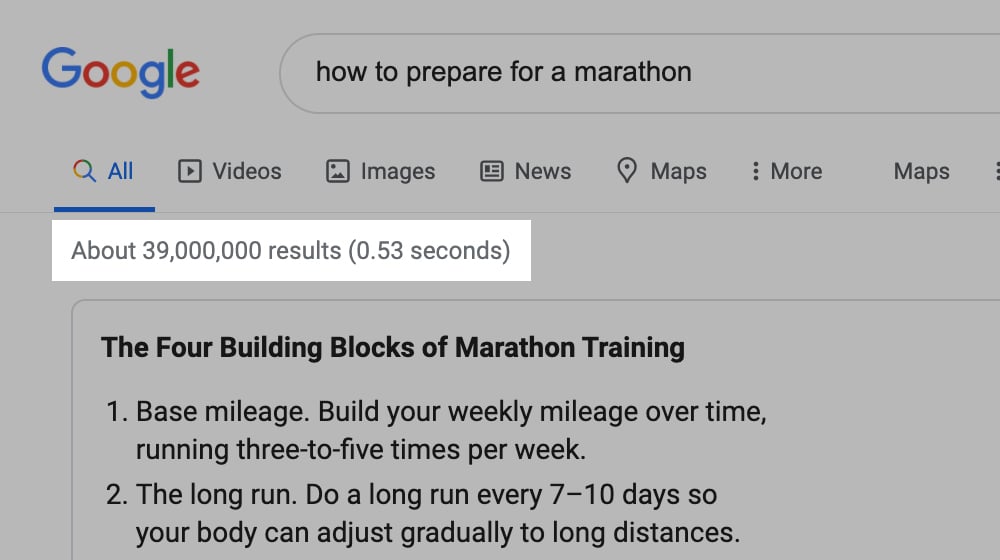
How do you know what of that advice is written by someone who has run marathons, versus information written by ghostwriters in a content mill, versus information that works but is out of date or less effective than other strategies? How do you know where you should direct your energy? If you're new to running, you don't.
This is why gyms offer fitness coaches. These people obviously can't take over and train your body for you, but they offer advice on how you can train. This advice is based on their past experience and knowledge of what does and doesn't work, as well as working with you to customize it for your specific situation, time scale, and goals.
Depending whether or not you take and use their advice (and use it correctly) is entirely up to you.
The Benefits of Using a Content Marketing Coach
There are definitely benefits to contracting a blogging coach to work with you and improve your business.
They have experience they can use to inform your strategies. If I had the chance to have someone like Neil Patel audit my site and tell me the top ten things I can do to boost my traffic, I'd pretty definitely take it. Do I want to pay for his services right now? Well, that's another question. I know, though, that Neil is extremely good at what he does and has been doing it for a long time, so I can trust his expertise. A good coach has years or decades of experience and knowledge of tips and tricks they can help you put to use to grow your business. These are experts that qualify leads by how many millions of dollars you're earning, which means they are best suited for larger and more established businesses.
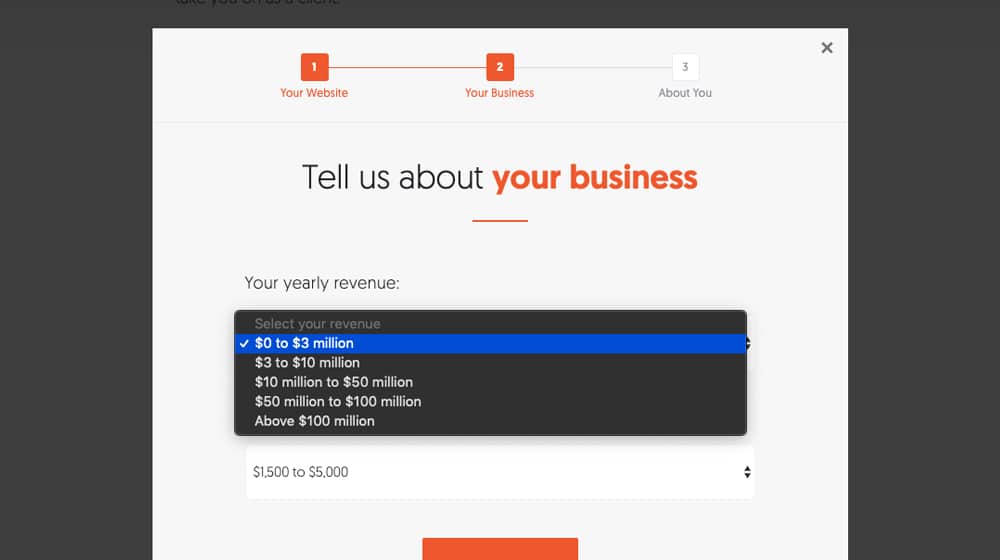
They can identify areas where you're in need of help. One of the best things a coach can do for you is look over your site and tell you the areas where you need improvement. Or, more specifically, they can identify those areas, and then tell you precisely what you need to do to improve. That might be putting more work into keyword research, or emphasizing on-page SEO, or putting more effort into refined advertising, or focusing more on social media, or writing longer posts, or any number of other pieces of advice.
They can prioritize efforts to get you the most bang for your buck. More important than the advice they give you, however, is the order of that advice. I might know that I could do five different things that would all have a beneficial impact on my business, but I have no way of knowing ahead of time which ones will have the best impact. If I have 10 hours I can spend doing something, should I dedicate all 10 to one task, split it 5/5 for two different tasks, or spread it out? Which tasks should I put more time into and prioritize? How do I best take advantage of the Pareto Principle, where 80% of my results come from 20% of my effort? A coach can help me identify which 20% of my efforts I should focus on.
They know how to use data to drive decisions. More so that experience, coaches know how to use tools to gather data and use that data to drive their decisions and advice. They can look at your site and get an idea of what kind of advice they'll give, but a good coach will give you more than just unfounded advice. They'll use data from your analytics, or from tools they have that can analyze your site, and will provide that data – and possible access to the tools themselves – to back up their advice.
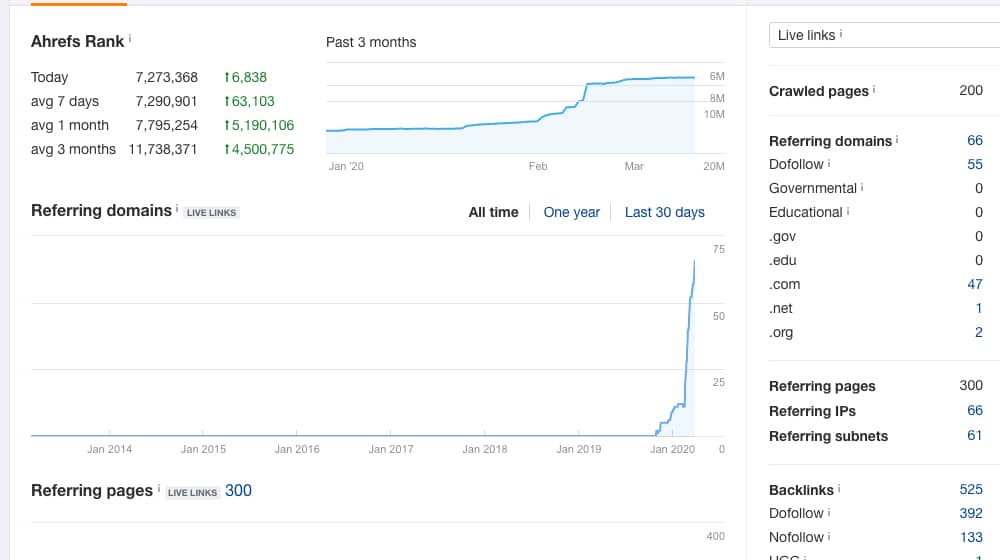
They can, if their advice is followed, dramatically improve your business. Obviously, the goal of coaching is not just to listen to the coach talk, it's to do what they tell you. A fitness coach giving you advice can help you achieve your fitness goals. A blogging coach giving you advice can help you grow your business to achieve whatever goal it is you're looking for. That could be more subscriptions, more sales, more followers, more traffic, better rankings, or anything else.
They teach you how to improve, rather than doing things for you. Coaching is not necessarily an ongoing relationship. You can keep in contact with a coach and pay them for ongoing sessions and aid, but you don't have to. Often, they give you a few sessions, a few meetings, and a plan for how you can move forward. You take their advice, their resources, and their recommendations, and you improve. You don't just improve your site, you improve your own knowledge and experience. You can leverage that experience moving forward, and continue to implement improvements as you learn and grow.
They're cheaper than an ongoing outsourced manager. Coaching can look expensive for a session on an hourly basis, but again, you're not beholden to pay for a three hour session every week for years. You get a lot of value out of a few coaching sessions, and then the expense is done, while the advice and information you received lives on. As long as you're capable of learning, growing, and implementing that advice, you get near-endless value out of those sessions.
Compare this to a blog manager. An outsourced blog manager might take over your whole marketing strategy. They'll implement their strategies, they'll put their experience to use, and they'll grow your business, but here's the catch: if you stop paying them, it cuts off. They didn't teach you anything or give you the tools to continue with the success yourself, you just become reliant on them.
The Drawbacks to a Blogging Coach
Despite all of the above, there are some real problems that can come up when you're hiring and working with a blogging coach.
You still have to take their advice and put it to use. "They don't take over and do it all for you" is a good thing because you can learn and improve and develop the tools to succeed on your own efforts, but it's also a drawback in that you do have to actually do that. If the coach doesn't explain things very well, if they don't set you up to succeed, or if you just aren't capable of doing the learning yourself (or don't have the time to do it among everything else), you end up paying for an expensive list of things you're not going to do. What you get out of blog coaching is as good as what you put in, the same as any other coaching. It's much like how seeing a fitness trainer doesn't do you any good if you don't do the exercises.
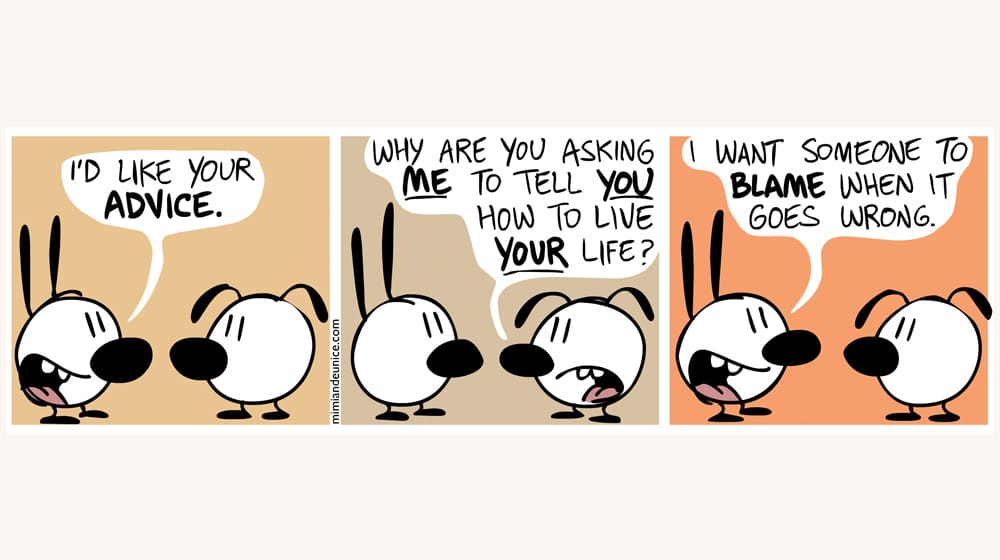
They might not actually be very good at what they do. There are a lot of people out there who offer coaching or consulting as a side gig simply because posts like the one I linked above tell them to. They're convinced that because they have a site that gets traffic, they know what they're doing well enough to teach others. A lot of people simply don't have the skills to teach.
This is doubly true with content marketing specifically. Some aspects of content marketing are fine to coach. Developing a bird's eye plan and pointing out specific goals is one thing. It's quite another to teach technical SEO in three hours, or give someone a crash course on technical writing for the web. These are skills that take time to learn, and are difficult to teach, especially in the constrained setting of a coaching session.
The money you're spending on a coach might be better spent elsewhere. Coaching isn't expensive in the grand scheme of things, and sometimes the value you get out of them developing a roadmap and performing a site audit is a great value for the money. On the other hand, instead of spending $200 for a couple hours of someone's time, you could spend that same $200 for six months of a high-quality marketing tool that lets you put some serious work into, say, keyword research, link auditing, or outreach, or $200 worth of paid advertising to boost your bottom line enough to afford such tools.
Nothing a coach says is going to be truly unique. A coach has experience and the tools necessary to customize advice for your situation, but nothing they tell you is going to actually be unique information. All of their advice has been written somewhere in a blog post dedicated to the subject, whatever the subject is. It might be tricky to find and recognize it as something you can use, but it's out there.
How to Identify a Good Content Marketing Coach
If you're interested in picking up a blogging coach, you need to make sure the one you hire is worthwhile. They'll all have good testimonials on their sites and good reviews elsewhere, but that's not important. The absolute baseline necessary to be a successful business is knowing how to manage your reputation, after all. The ones with bad reviews and bad services aren't going to show up in your searches.
One thing I look for when I'm investigating a blogging coach is whether or not they understand the basics. If you've read some of my reviews of various services for marketing, you know I like to nitpick little signs of quality. For example, a social media service that talks about "growing your Twitter favorites" is a sign that the company doesn't care about what they're doing, since Twitter changed "favorites" to "likes" years ago.
Up above, I pointed to Stephanie Fiteni as an example of a dedicated blogging coach. I'm sure she provides at least an adequate service, though I haven't contracted her myself. When I look at her blog, though, I find things like this post. Missing punctuation in the first sentence. Random capitalization. Random extra line breaks. Very few images in the post. No blog comments. Tags that are invisible until you hover over them. The Google Plus button in the social sharing buttons. No real keyword focus.
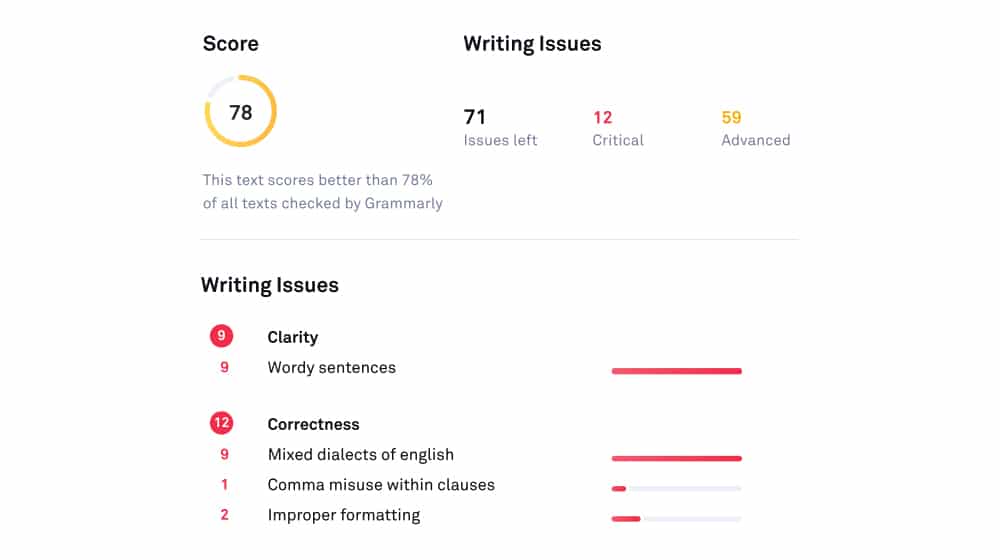
Most of these are little things, and I'm not trying to single out this one example, but these small things are indicative of a larger concern. If the coach doesn't put attention to detail into their own blog, how much are they putting into yours? Sure, it's entirely possible that their site exists solely to attract traffic, not be a portfolio piece, but then I have to ask: why wouldn't it be?
Of course, if you're the kind of person looking for coaching, you might not know enough to be able to spot these kinds of potential issues. I'm not in need of basic coaching; the site isn't for me. Still, though, it's something to watch out for.
Another thing to look for is what level of service the coach usually offers. Look at the clients they list as testimonials. Are those people successful now? That can be an indication of how good the coach is. A person can be satisfied with coaching and still not be a big-name success. That's fine, but if that doesn't align with your goals, they may not be the right coach for you.
You'll also want to make sure they work with your industry and business style. Some blogging coaches specialize in small businesses, in local businesses, or in specific niches like health, finances, or B2B businesses. Finding the right coach can be surprisingly tricky, despite the number of people offering the service in general.
The Final Question
So, there you have it; a comprehensive idea of what a content marketing consultant can do for you. You're left with just one question: is it worth it?
If hiring an agency to handle your content marketing strategy for you is more cost-effective to you than doing it all yourself, then great! There's no shame in outsourcing to a quality company like mine; thousands of businesses do it, from the smallest of the small to many of the largest firms on the planet.
If you would rather build up that knowledge in-house, and double or triple your blogging effectiveness through training, great! A consultant is almost always going to be shorter-term, more expensive, but more valuable to your institution after they've gone. The building of that institutional knowledge can be a powerful benefit. If it's worth it to you, and you can justify an in-house content marketing team of your own, then that may be a good route for you.
You just need to make the choice. Determine whether or not you're willing to have an in-house marketing team. Determine if you're going to hire highly-skilled marketers for your team, those who already know what they're doing, or if you'd rather hire less expensive (and less skilled) team members to train yourself. Then decide if you're willing to do that training, or if you want to hire a consultant to do it for you.
If you're not willing to create a full-time in-house marketing team for your startup, well, that's fine too. There are plenty of agencies out there you can hire to work for you and assemble your content strategy. If you don't want to build an in-house marketing team, then don't build one. It's a complicated industry, and poorly managing your content marketing strategy will always be worse and potentially more costly than outsourcing it.










March 26, 2021
Great advice here. I'd love to find a consultant that knows what they are talking about, but it's hard to find a consultant who claims to be an expert and actually has a blog themselves.
March 26, 2021
Hey Elizabeth! They are out there if you look hard enough.
Feel free to drop me a line if you have any questions - I'll see if I can save you a few bucks by answering any questions you might have.
We provide free consulting to our clients all the time. I'm happy to help!
February 18, 2022
Great read. We've considered creating our own content marketing strategy team but ended up with the conclusion that it's too costly for us. I think we're better off investing in outsourcing help on this. It makes sense to get professional opinion before we shell out thousands on content. It's like building a house with the wrong materials - better to measure three times and cut once.
February 21, 2022
Hi Selva!
Great analogy. That's a situation I see all too often - if you continue building for years and then find out that you were doing it all wrong, it can become a costly mistake. In that case, an hour or two with a professional content marketer could have saved you a ton of time and money.
It's hard to find consultants worth their salt, though. It may not be a bad idea for somebody in this position to speak with two or three consultants and see what each of them has to say.
Hopefully, they touch on topic research, competitive research, evergreen content, long-form content, and on-site optimization. If not, I'd find somebody else who does cover those things in detail 🙂